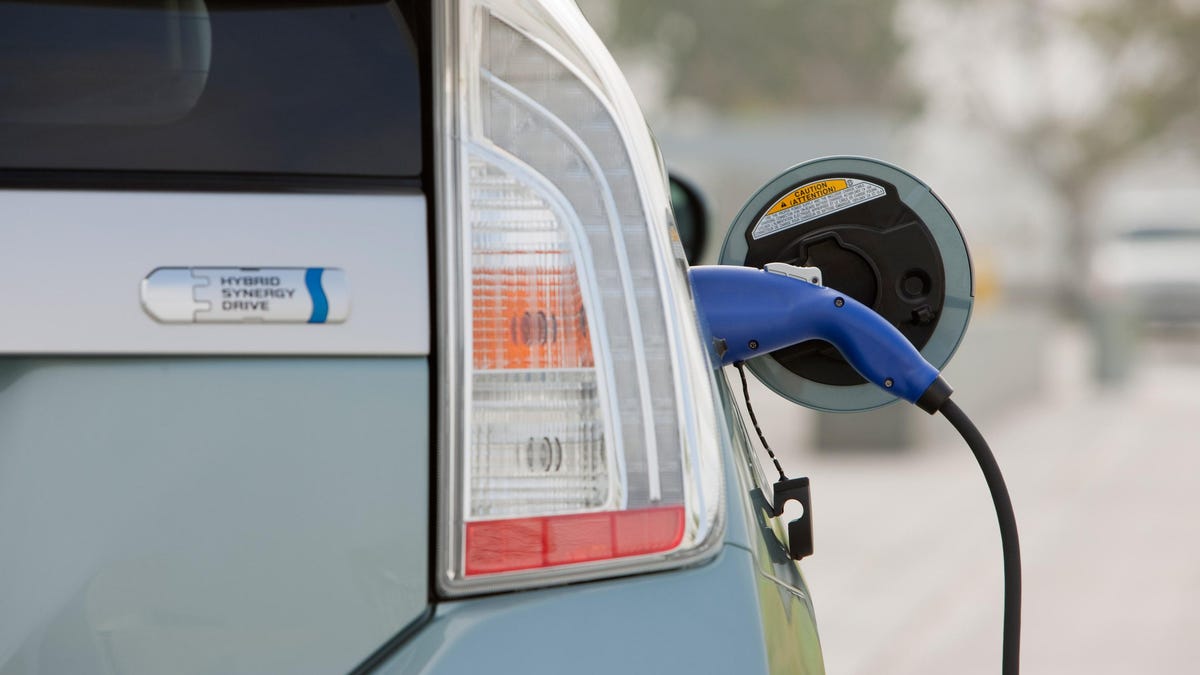Toyota to introduce 10 electric cars by mid-2020s
Additionally, its whole lineup will be electrified by about 2025.

Toyota might have been one of the first automakers to embrace gas-electric hybrids , but its efforts in developing battery-electric vehicles have been lagging. The company hopes to address that over the next few years in big ways.
Toyota today outlined its electric-vehicle plans for between 2020 and 2030. In short, the future will rely heavily on electrification, something just about every automaker has brought up in the last year or two. Thankfully, Toyota's offering more than just vague hints about its future.
Perhaps the most interesting part of the announcement is the claim that Toyota will introduce "more than 10" battery-electric vehicles worldwide by the early 2020s. The onslaught will start in China before eventually working its way to Japan, Europe, the US and India. It's unclear what kind of vehicles they will be, whether standalone models or BEV variants of current models, but it's safe to assume there will be some crossovers in there.
As long as they aren't all equally homely as the Prius, I'm down.
Alongside that battery-electric rollout, Toyota has promised to electrify the whole of both Toyota and Lexus lineups by about 2025. At that time, every model will be either a standalone electrified model or a variant of a traditional gas model. There will be no model available after that point with just a gas or diesel engine.
It's important to note that electrification doesn't necessarily relate to battery-electric vehicles. Electrifying a lineup can take many forms, whether it's a hybrid, plug-in hybrid, battery-electric or hydrogen fuel cell powertrain.
Speaking of hydrogen, Toyota's not ready to ditch it. Toyota intends on expanding its hydrogen fuel cell lineup in the 2020s, covering both passenger and commercial vehicles.
Hell, even regular hybrids aren't about to fall by the wayside. Toyota has big plans for its standard gas-electric hybrid powertrain. It'll keep working on the new hybrid system that underpins the new Prius, and considering how many new Toyotas are moving to its platform, I wouldn't be surprised to see new hybrid versions of just about every new model Toyota announces between now and 2025. It's also working on a more powerful version of its hybrid system "in some models," so don't count Toyota's sports-car efforts out just yet.
Batteries are obviously the key to this lineup shift. Toyota has been hard at work on a solid-state battery, which could make waves in terms of both charging time and overall range -- a breakthrough it won't be sharing with development partner Mazda. At the same time, Toyota and Panasonic will soon enter into a feasibility study on a joint venture related to batteries.
If that sounds like a lot, it is. This push should help alleviate concerns that Toyota has fallen behind in the race to bring electrified vehicles to the mass market.

